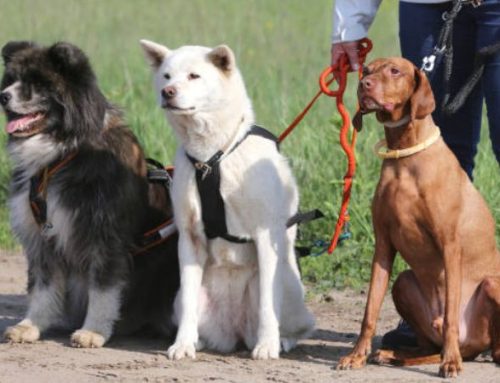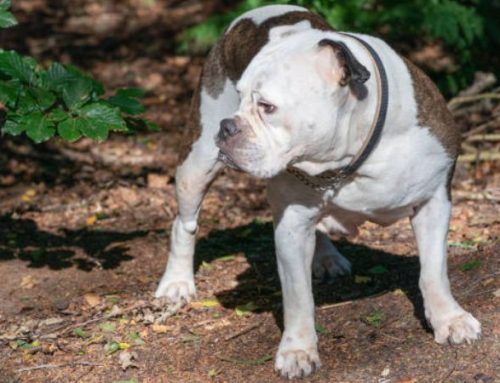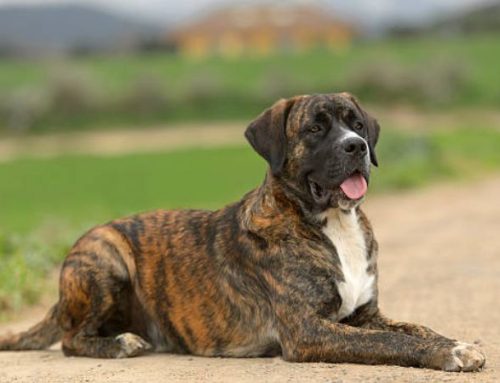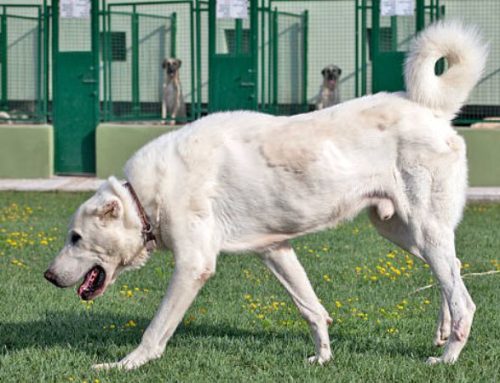Strong, loyal, and endlessly alert, the Aidi is a remarkable guardian from the rugged Atlas Mountains of North Africa. For generations, this devoted breed has protected herds and homes with unmatched courage and intelligence.
Beneath its tough exterior, though, lies a playful and affectionate companion that forms deep bonds with its family. In this guide, we’ll explore everything you need to know about the Aidi Dog from its price and size to its temperament and unique personality.
Introduction to the Aidi (Atlas Mountain Dog)
Known for its courage and unwavering loyalty, the Aidi—also called the Atlas Mountain Dog, Berber Dog, or Chien de l’Atlas—is a traditional livestock and property guardian native to the Atlas Mountains of North Africa, particularly Morocco. This resilient breed has long served the Berber tribes as a protector of flocks and families, standing watch over herds of sheep and goats against predators and intruders.
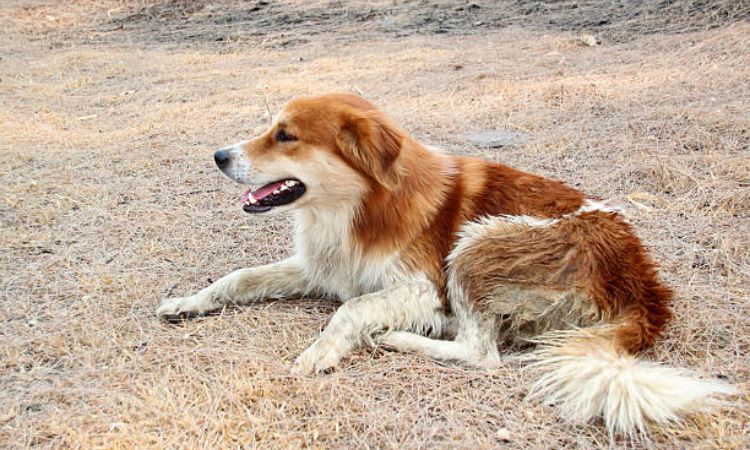
Unlike herding breeds that drive livestock, the Aidi’s true calling lies in guarding and defending, a role it performs with remarkable intelligence, endurance, and vigilance. Over time, it has also proven itself a versatile companion, valued for both its working instincts and its affectionate loyalty to its human family.
Aidi Key Facts & Statistics
| Category | Details |
| Group | Working / Livestock Guardian |
| Origin | Atlas Mountains, North Africa (primarily Morocco) |
| Alternate Names | Atlas Mountain Dog, Berber Dog, Chien de l’Atlas, Aïdi |
| Primary Role | Guardian of livestock, property, and family (not a herder) |
| Coat Type | Dense, weather-resistant double coat with bushy tail |
| Colors | White, black, tawny, pale red, black & white |
| Temperament | Brave, loyal, watchful, intelligent |
| Life Expectancy | 12–15 years |
Aidi Size and Physical Characteristics
Size
Adult Aidis typically stand 20 to 24 inches (52–62 cm) tall at the shoulder and weigh around 50 to 55 pounds (22–25 kg). Males tend to be slightly larger and more muscular, while females are usually a bit lighter and more refined in build. Despite their moderate size, these dogs possess a solid, muscular frame that allows them to perform demanding tasks with ease.
Body and Structure
The Aidi’s body is well-proportioned and lean, with a deep chest, strong legs, and a straight, level back that enhances endurance. Their neck is thick and slightly arched, leading to a broad head and powerful jaw—features that contribute to their fearless guardian nature. The breed’s bushy, plumed tail adds balance and serves as protection against harsh weather when curled around their body during rest.
Coat and Color
One of the Aidi’s most distinctive features is its dense, weather-resistant double coat, developed to shield the dog from both mountain cold and desert heat. The outer coat is coarse and slightly rough to the touch, while the undercoat is soft and insulating.
The Aidi comes in a variety of colors, including white, black, tawny, pale red, and black-and-white. The coat’s texture and color patterns often vary slightly by region, influenced by local climates and breeding traditions.
Facial Features
The Aidi’s head is broad and bear-like, balanced by a tapered muzzle that ends in a dark nose—usually black or brown to match the coat. Their medium-sized, forward-tipped ears give them an alert expression, while their dark, almond-shaped eyes reveal an intelligent and observant temperament.
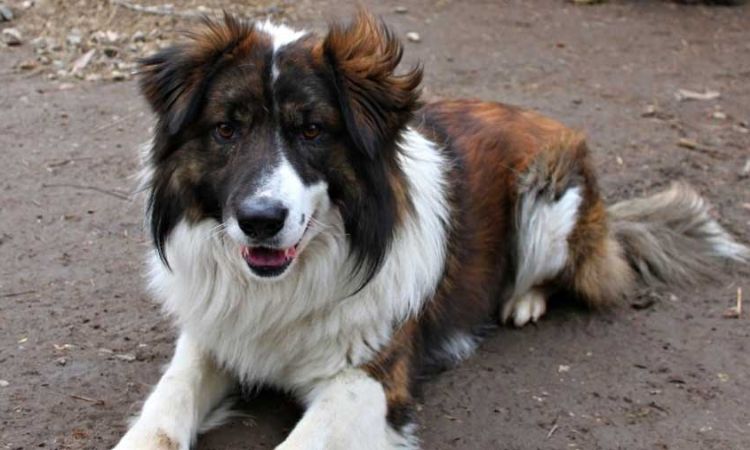
Aidi Temperament and Personality
Loyalty and Protectiveness
At the core of the Aidi’s personality is a deep sense of loyalty and guardianship. Historically, they were stationed around nomadic camps or herds to fend off predators, and this instinct carries over to the modern household. An Aidi will instinctively guard its home, family, and children, often staying alert even during rest. While they are naturally watchful, their reactions are usually measured and proportional—they are not unnecessarily aggressive, but they take threats seriously.
Intelligence and Trainability
Aidis are highly intelligent and responsive dogs. They thrive when given tasks or mental challenges, and their sharp minds make training rewarding, especially when using positive reinforcement methods. However, this breed can also display an independent streak, a trait stemming from their history as self-reliant livestock guardians. Patience, consistency, and encouragement are key to raising a well-mannered Aidi.
Playfulness and Energy
Despite their serious guarding instincts, Aidis are naturally playful and energetic, especially as puppies. They enjoy interactive games like fetch, tug-of-war, and outdoor activities that allow them to expend energy. Daily exercise is essential—not only to maintain physical health but also to prevent boredom, which can lead to destructive behavior. A secure yard or access to open spaces is ideal to keep this active breed happy.
Socialization with People and Pets
When properly socialized from a young age, Aidis can be affectionate, gentle, and attentive companions, especially with children. They tend to form strong emotional bonds and often enjoy being close to family members, sometimes even taking on a protective “guardian” role around kids.
However, Aidis can be cautious or aloof around strangers. They need time to size up new people and can initially appear reserved. Early exposure to different environments, people, and other animals is crucial to prevent over-guarding or territorial behaviors.
While affectionate toward their human family, Aidis often prefer to be the only dog in a household. They can show aggression or dominance toward other dogs unless raised together from puppyhood, making them better suited for single-dog homes.
Aidi Price and Cost of Ownership
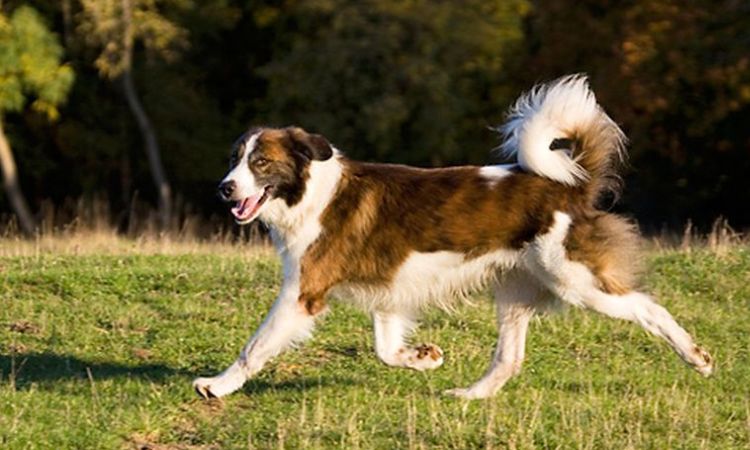
Aidi Puppy Price Range
Aidi puppies are considered rare, particularly outside of their native North Africa. Prices can vary significantly depending on the breeder and location, but you can generally expect to pay between $800 and $1,500 from a reputable breeder. Due to their limited availability in regions like the United States or Europe, acquiring a purebred Aidi may take time and sometimes involve importing the puppy.
Factors Influencing Price
Several factors can affect the cost of an Aidi:
- Pedigree and lineage: Puppies from champion bloodlines or with documented working traits tend to be more expensive.
- Breeder reputation: Well-established breeders who prioritize health testing and socialization typically charge higher prices.
- Location and rarity: In regions where the breed is uncommon, prices may rise due to limited supply.
Initial and Ongoing Costs
Owning an Aidi involves both upfront and recurring expenses:
Initial Costs:
- Vaccinations and health check-ups
- Spaying or neutering
- Basic supplies such as a crate, leash, bowls, bedding, and toys
Ongoing Costs:
- Food: High-quality, protein-rich diets suitable for medium-sized, active dogs
- Veterinary care: Routine check-ups, flea/tick prevention, and occasional medical treatments
- Grooming supplies: Brushes, nail clippers, and occasional bathing products to maintain the thick, weather-resistant coat
Health and Grooming
Common Aidi Health Issues
The Aidi is generally a robust and healthy breed, thanks to its heritage as a working dog in the Atlas Mountains. However, like all breeds, there are certain conditions that prospective owners should monitor:
- Hip Dysplasia: A hereditary condition where the hip joint does not fit together properly. This can cause pain, lameness, or arthritis. Maintaining a healthy weight, providing joint supplements, and regular veterinary care can help manage this condition.
- Elbow Dysplasia: Similar to hip dysplasia, this malformation of the elbow joint can affect mobility. Treatment ranges from medication and physical therapy to surgery in severe cases.
- Eye Problems: Cataracts may develop in older dogs, leading to cloudiness in the eyes. While surgery can address severe cases, many dogs live comfortably with mild cataracts.
Routine veterinary check-ups, a balanced diet, and regular exercise are essential for keeping an Aidi healthy throughout its 12–15 year lifespan.
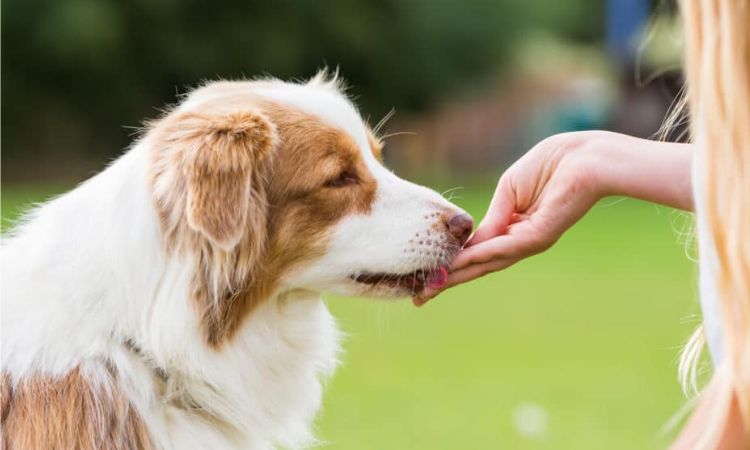
Grooming and Maintenance
Aidi dogs have a thick, weather-resistant coat designed to protect them in harsh environments. Proper grooming ensures their coat stays healthy and reduces shedding around the home.
- Shedding: Moderate, with seasonal peaks in spring and autumn.
- Brushing: Brush 2–3 times per week to prevent matting. During heavy shedding seasons, daily brushing may be necessary. Use a pin brush, boar’s bristle brush, or a combination to gently remove loose hair and maintain coat luster.
- Bathing: Only as needed, typically every few months, to preserve the natural oils that keep the coat healthy. Over-bathing can strip these oils and dry out the skin.
- Additional Care: Trim nails regularly, clean ears to prevent infections, and brush teeth to maintain oral health.
With consistent grooming and preventative care, the Aidi’s coat remains protective and attractive, and the dog stays comfortable and healthy year-round.
An Aidi is a loyal, protective, and playful companion. With proper exercise, training, and care, they thrive in family homes, providing affection and excellent watchdog instincts. Meeting their health and grooming needs ensures a happy, balanced life for both dog and owner.


